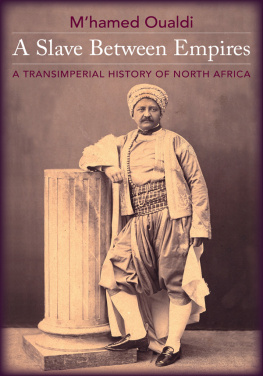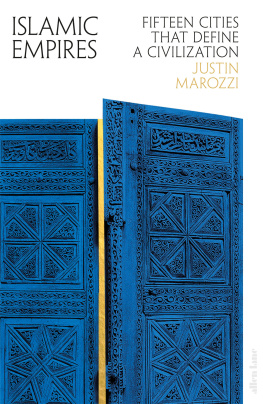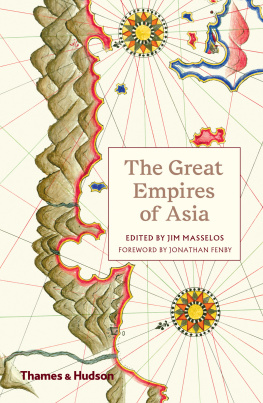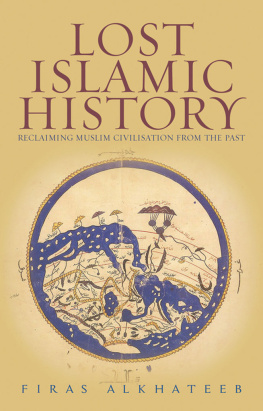This dynamic new series will publish books on the milestones in Asian history, those that have come to define particular periods or mark turning-points in the political, cultural, and social evolution of the region. Books are intended as introductions for students to be used in the classroom. They are written by scholars whose credentials are well established in their particular fields and who have, in many cases, taught the subject across a number of years.
For a list of titles published in the series, please see .
CAMBRIDGE UNIVERSITY PRESS
Cambridge, New York, Melbourne, Madrid, Cape Town, Singapore, So Paulo, Delhi, Tokyo, Mexico City
Cambridge University Press
32 Avenue of the America: New York, NY 10013247: USA
www.cambridge.org
Information on this title: www.cambridge.org/9780521691420
Cambridge University Press 2010
This publication is in copyright. Subject to statutory exception and to the provisions of relevant collective licensing agreements, no reproduction of any part may take place without the written permission of Cambridge University Press.
First published 2010
4th printing 2011
Printed in the United States of America
A catalogue record for this publication is available from the British Library
ISBN 978-0-521-87095-5 Hardback
ISBN 978-0-521-69142-0 Paperback
Cambridge University Press has no responsibility for the persistence or accuracy of URLs for external or third-party Internet websites referred to in this publication, and does not guarantee that any content on such websites is, or will remain, accurate or appropriate.
Preface
Marigold Acland of Cambridge University Press commissioned this book and, like dozens of other scholars, I deeply appreciate both her encouragement and her sympathetic interest in and sophisticated knowledge of Islamic studies. The book was written during a wonderful leave year funded by a research fellowship from the National Endowment of the Humanities in Washington, DC, supported by matching funds from the Ohio State University.
I have benefited from the work of so many scholars in so many disciplines that it is impossible to credit them all. My intellectual debts will be obvious from the footnotes and bibliography, but beyond those citations, I want to particularly acknowledge Cornell Fleischer, who introduced me to both Turkish and Ottoman history; my own colleagues in Ottoman studies, Carter Findley and Jane Hathaway; Glru Necipolu for her cultural studies of Ottoman architectural history; and Suraiya Faroqhi for her many works on Ottoman social history. Hamid Algar introduced me to Persian and modern Iranian history and John Masson Smith Jr. taught me the use of documents and coins for pre-modern Iranian and Middle Eastern history. In addition I am particularly indebted to Rudi Matthee for his publications on the Safavids and to Paul Losensky for his revealing studies of Persian poetry of the Safavid and Mughal eras. I first studied Indian history with Eugene F. Irschick, and began my studies of Mughal history with the work of the late John Richards. I have also benefited from the work of Muzaffar Alam and an entire galaxy of Indian historians who have produced seminal scholarship on the Mughal period, especially Tapan Raychaudhuri, Irfan Habib, Athar Ali, and the scholar of Indo-Persian literature, Abdul Ghani. Amina Okadas studies of Mughal art have also shaped the way in which I look at the paintings of the imperial atelier.
Three scholars took the time to read and critique this book in manuscript form, and they will recognize that many of their valuable suggestions are integrated into the final text. They are Catharine Asher, the historian of Mughal architectural history; Gene Garthwaite, a specialist on the Bakhtiyari nomads and the history of modern Iran; and Ruby Lal, who is known for her study of women in early Mughal history. The book is substantially better for their help.
My thanks go to three institutions for permission to quote from copyright material. They are: Princeton University Press, for Cornell H. Fleischer, Bureaucrat and Intellectual in the Ottoman Empire: The Historian Mustafa Ali (15411600) (1986); the University of Washington Press, for a book whose rights they now own, namely Ottoman Lyric Poetry , ed. and trans. Walter G. Andrews, Najaat Black, and Mehmet Kalpakli (Austin: University of Texas Press, 1997); and Mazda Press, for Paul E. Losensky, Welcoming Fighani: Imitation and Poetic Individuality in the Safavid-Mughal Ghazal (Costa Mesa, CA: Mazda, 1998).
I have dedicated this book to my late brother, Roderic M. K. Dale.
Languages and transliteration
Languages
Three principal languages were used in the Ottoman, Safavid, and Mughal empires. These were: first, the Semitic language Arabic, the native language of ethnic Arabs as well as religious and scientific language of the Islamic world; secondly, the Indo-European language Persian, the native language of ethnic Iranians, the lingua franca of educated Muslims in Anatolia, Central Asia, and northern and central India, and the prestigious literary language of Muslims in all three empires; thirdly, Turkish, one of a larger family of some thirty-four related languages, sometimes labeled, controversially, as Altaic languages. All three languages were written in the Arabic script, but the use of this script for Persian led to the creation of new letters to reflect Persian pronunciation. This script was particularly ill suited to Turkic languages, including Ottoman, so that some letters in Ottoman or other Turkic dialects have different values from those they have in Persian or Arabic.
Transliteration
Generally Arabic, Persian, and Turkish words have been spelled in accordance with the system used by the International Journal of Middle East Studies . However, some exceptions have been made for commonly accepted usages, such as Mughal for Mughul, Abul Fazl, the name of the Mughal minister, instead of Abul-Fadl, and a few others. Such usages partly reflect customary pronunciations, and the pronunciation of all three languages, belonging as they do to three major language families, is distinctly different. To take just one simple example, the common name for a Muslim religious judge is usually written, reflecting its original Arabic pronunciation, as qadi . In Turkish, as will be seen, it is usually written, in the Latin script adopted in the Turkish Republic, as kadi , while in Persian the word is often written, as it is pronounced, qazi . And in both Turkish and Persian the a of qadi is sounded differently than in Arabic. Speakers of each language have even modified the pronunciation of religious terminology. Readers familiar with one or more of these languages will supply their own pronunciations. Others need not be concerned, as it is the meaning of the terminology, as explained in the text or listed in the Glossary, which is most important.








